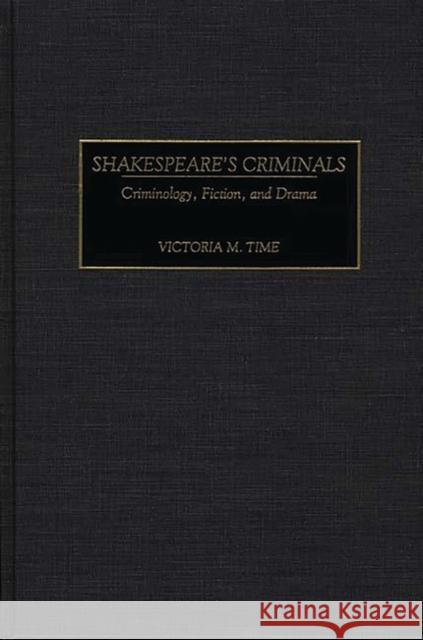Shakespeare's Criminals: Criminology, Fiction, and Drama » książka
Shakespeare's Criminals: Criminology, Fiction, and Drama
ISBN-13: 9780313308703 / Angielski / Twarda / 1999 / 192 str.
By exploring Shakespeare's use of law and justice themes in the context of historical and contemporary criminological thinking, this book challenges criminologists to expand their spheres of inquiry to avenues that have yet to be explored or integrated into the discipline. Crime writers, including William Shakespeare, were some of the earliest investigators of the criminal mind. However, since the formalization of criminology as a discipline, citations from literary works have often been omitted, despite their interdisciplinary nature. Taking various Shakespearean plays and characters as case studies, this book opens novel theoretical avenues for conceptualizing crime and justice issues.
What types of crimes did Shakespeare's characters commit? What were the motivations put forth for these crimes? What type of social control did Shakespeare advocate? By utilizing a content analysis procedure, the author confirms that many of the crimes that plague society today were also prevalent in Shakespeare's time. She gleans twelve criminological theories as motivations for character deviance. Character analysis also provides valuable insight into Shakespeare's notions of formal and informal social control.











